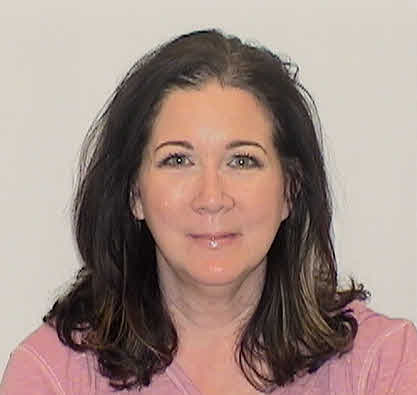Dr. Rachel Ingel-Champion merges business and psychology to help companies thrive.
When Dr. Rachel Ingel-Champion came to Alliant International University she already had an MBA and a fulfilling, successful marketing career. However, after a few years her passion for psychology and desire to build theory and research skills that focused more on people meant finding a way to marry business and psychology.
Rachel soon transitioned from working in marketing to the training and development field which eventually led to her pursuing her PhD in industrial organizational psychology at Alliant specializing in strategic human resources. The flexibility of the program schedule allowed her to keep working full-time and complete the program on her timeline. “So many of my colleagues earned their PhDs from the California School of Professional Psychology (CSPP) so I had heard great things about it. I was looking at programs in Los Angeles that fit my schedule, had a great alumni base, and a strong reputation. Alliant seemed to fit the bill in more ways than one.”
When Rachel started the program, she was newly married and at the beginning of her organizational development career. “But then life happened, and it seemed like my career and my family decided to expand at the same time. I was promoted a couple of times during the program, and then my husband and I decided to have a child, so I needed to balance that into my plans.” While searching for a dissertation topic, Rachel gravitated toward the topic of working mothers. “I was working in an office full of mothers who were aspirational in their careers and incredibly intelligent and we were all trying to balance having children at the same time as growing our careers, so I decided to make that part of my dissertation.” Rachel credits her statistics professor with encouraging her to find a way to design her life that included all three goals. “He said if I really want to be a mother, have a career, and pursue a PhD there's no reason I shouldn't be able to do it. Life just finds a way so don't necessarily put your aspirations on hold; figure out how to do these things in a manageable way.”
Rachel also credits pursuing a career, a doctorate, and a family with teaching her lessons about prioritization, discipline, and what she was capable of while solidifying her passion for the field. “I learned a lot of life lessons through this process, and I had professors who helped me navigate a lot of the challenges in life which was great. I do think that it is possible to handle all three things. It's just about knowing what you want out of the program and understanding where there are trade-offs.”
Rachel noted that, like many women, she had a high propensity to want to be perfect. But perfectionism isn’t just limited to women, and it is certainly not a sustainable business model. “The pandemic underscored how there’s so much to do and that our capacity to do all of those things is limited. I think everybody realized that perfect takes time, effort, and a heavy lift and you cannot sustain that level of effort on a daily basis, so there's more of a realistic perspective now. I will say, however, that employers alleviating that burdenwe're not there yet.” Rachel recognizes that there is a constant tension between knowing the reality of what employees can handle and managing commitments that companies have on the business side to their shareholders. “What hasn't been connected yet is how you do that with your people and avoid burning them out or causing too much attrition or undue damage to their wellness. That's where organizational psychology is an incredibly high need and it’s why I love this field. For both organizations and human beings to thrive, we need to bring the business and psychology sides together because in a lot of ways, it's humanizing business.”
Rachel works as an independent consultant and executive coach through her company, LumaGo, where she helps employees and leaders build progress through coaching or designing classes and other types of performance programs. She helps with individual and group development, as well as the systematic piece of looking at a whole organization and understanding how it is working in conjunction with its people. “I do a lot of leadership coaching because the greatest need right now is helping leaders understand how to manage people. When it comes to individuals, I’m especially interested in coaching clients who are women or part of the BIPOC (Black, Indigenous, People of Color) community because I believe there needs to be more diversity in coaching to help these populations move into leadership roles. There’s a very traditional business model of what a leader looks like and, through research and other methodologies, I’m trying to help people who don't fit that bill find their strengths so they can be successful leaders in their unique way.”
Another thing that Rachel finds encouraging is that more companies and leaders are talking about mental health and wellness as a priority for their employees. She loves that organizational psychology is ideally suited for answering many of the questions that come up around how leaders treat their employees and ensure that work-life balance and mental well-being are being addressed in the workplace daily. “To put it colloquially, there are some things you can't unsee, and two to three years of being human during a pandemic means you cannot unsee the amount of work that we were all doing under crazy conditions. You cannot unsee the joys of spending time on personal things or having free time to spend with your friends and family. Organizational psychologists can absolutely help find new solutions that balance both of those things.”

